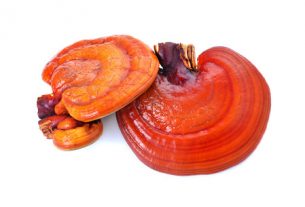Abstract
Ethnopharmacological relevance and aim of the study: Phellinus linteus is a herb used in traditional Asian medicine to treat stomachache, inflammation, and tumors. Recent studies show that the extract of Phellinus linteus has anti-inflammatory and antitumor activities. However, Phellinus linteus extract has limitation of high cost and limited availability because of supply shortage. Here, we grew Phellinus linteus on germinated brown rice to address the issue of supply shortage and investigated anti-inflammatory effect in vivo as well as in vitro.
Materials and methods: Phellinus linteus grown on germinated brown rice (PBR) were extracted using filtration steps, which included γ-aminobutyric acid (GABA). The PBR (200, 500mg/kg/day) was applied into the mouse model of dextran sodium sulfate (DSS)-induced colitis and lipopolysaccharide (LPS)-stimulated mouse macrophage RAW264.7 cells. We used sulfasalazine as a reference drug. In addition, mechanism related to anti-inflammatory was investigated by Western blotting.
Results: In the mouse model of DSS-induced colitis, PBR ameliorated the pathological characteristics of colitis such as shortening of colon length and improved the disease activity index score. In addition, we showed that PBR reduced the expression of nuclear factor-kappa B (NF-κB) in colitis. Western blotting showed that PBR decreased the expression of inducible nitric oxide synthase (iNOS) and cyclooxygenase-2 (Cox-2) proteins. Further, PBR treatment reduced the expression of mitogen-activated protein kinases (MAPKs) (e.g., extracellular signal-regulated protein kinase (ERK) and p38) in the mouse model of DSS-induced colitis.
Conclusions: Treatment of RAW 264.7 macrophages with a combination of PBR and LPS showed a significant concentration-dependent inhibition of nitric oxide (NO) and prostaglandin E2 (PGE2) production. In addition, we determined the ability of PBR to reduce the iNOS and tumor necrosis factor (TNF)-α expression. PBR inhibited the expression of iNOS, NF-κB, and Cox-2 proteins in LPS-stimulated RAW264.7 macrophages. This study presents the potential use of PBR as a drug candidate against colitis.
